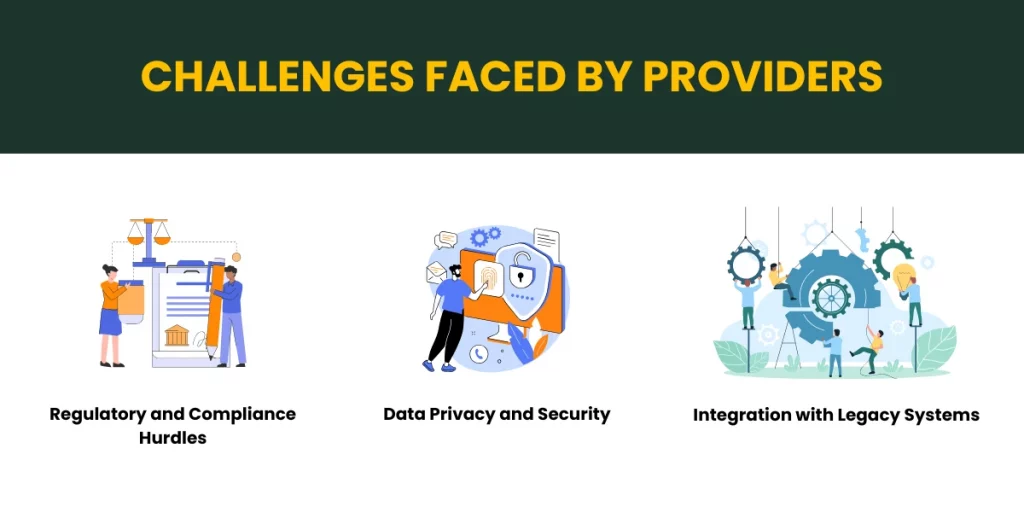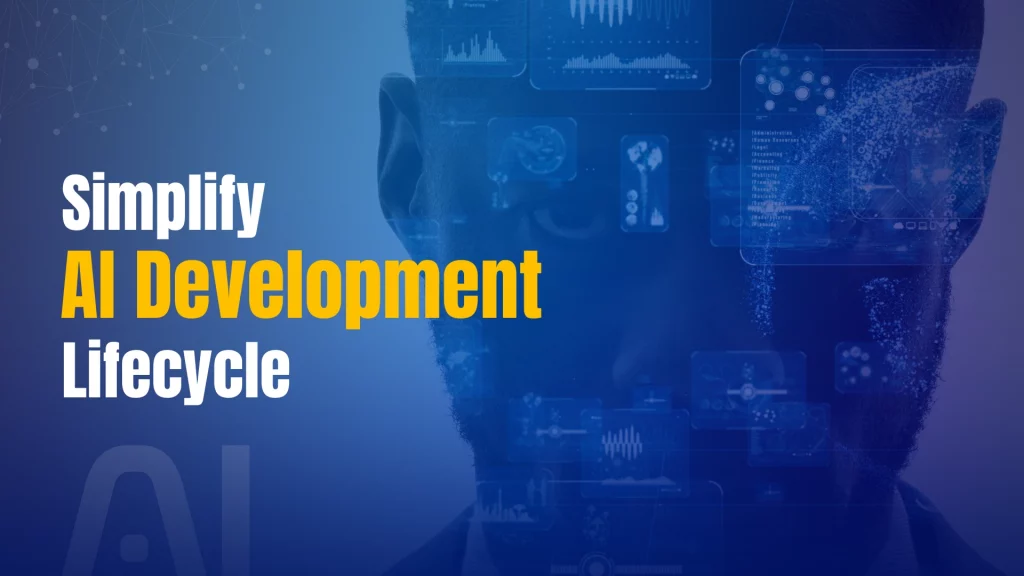Artificial intelligence is transforming the healthcare industry. The leading providers of AI technology in healthcare are addressing critical challenges. These include diagnostic errors, operational inefficiencies, and the need for personalized care. Their tools are helping doctors make faster and more accurate decisions. AI is also improving treatment outcomes and streamlining medical workflows. Custom solutions, such as those used in AI development projects, are central to this transformation.
It is important to know which companies are driving these advancements. From global leaders to innovative startups, they are shaping the future of healthcare. By exploring their contributions, we can understand the potential of AI in improving medicine.

Table of Contents
Main Areas of AI Application in Healthcare
The leading providers of AI technology in healthcare are driving innovation across several critical areas. Their solutions address pressing medical needs, from diagnosing diseases faster to personalizing treatments. These applications transform how healthcare is delivered and managed, benefiting patients and providers alike. Tailored developments, like those supported by offshore AI development teams, ensure that solutions align with the unique demands of healthcare organizations. Understanding these areas highlights the breadth of AI’s potential in the medical field.
1. Diagnostics and Imaging
AI-powered tools analyze medical images like X-rays and MRIs with precision. They detect abnormalities such as tumors or fractures early. This improves diagnostic accuracy and reduces human error. Such solutions often rely on the scalability of customized software frameworks.
2. Patient Management and Care Delivery
AI helps personalize treatments based on patient data. It enables real-time monitoring of chronic conditions. This leads to better care plans and proactive interventions.
3. Drug Discovery and Personalized Medicine
AI accelerates drug discovery by analyzing massive datasets. It identifies potential treatments faster than traditional methods. This supports the development of targeted therapies for individual patients.
4. Operational Efficiency and Hospital Management
AI optimizes workflows by automating administrative tasks. It predicts patient admission rates to improve resource planning. Hospitals save time and reduce costs with these tools. Many healthcare institutions rely on dedicated development teams to integrate these solutions seamlessly.
These applications demonstrate how AI is addressing diverse challenges in healthcare while paving the way for future advancements.
Criteria for Leading Providers
The leading providers of AI technology in healthcare stand out due to their ability to innovate, demonstrate clinical impact, and address regulatory complexities. These companies consistently invest in advanced tools and technologies, often developing solutions in collaboration with expert AI development teams to meet healthcare’s unique requirements.
1. Innovation and Advanced Technology
Leaders use state-of-the-art AI techniques like deep learning and natural language processing. They continually invest in R&D to improve their solutions. This allows them to tackle complex healthcare challenges effectively.
2. Clinical Impact and Proven Results
Leading providers demonstrate measurable results in real-world settings. Their AI solutions reduce diagnostic errors, improve patient outcomes, and streamline workflows. Case studies, like those featured in success stories, highlight their value.
3. Regulatory Compliance and Data Security
Top providers prioritize regulatory approval for their tools, ensuring safety and reliability. They also adhere to strict data privacy laws like HIPAA and GDPR. This builds trust with healthcare organizations and patients.
These criteria distinguish companies that are genuinely transforming healthcare with AI from those merely experimenting with it.
Profiles of Leading Providers
The leading providers of AI technology in healthcare are advancing the industry with groundbreaking solutions. These companies excel by delivering tools that enhance diagnostics, improve patient care, and streamline operations. Their achievements demonstrate how AI can address healthcare’s biggest challenges. Many of these innovations are supported by expertise in custom AI software development, enabling tailored solutions for diverse medical needs.

1. IBM Watson Health
IBM Watson Health offers AI-powered tools for oncology, diagnostics, and genomics. By analyzing large datasets, their solutions assist clinicians in making faster, more informed decisions. Watson Health’s capabilities demonstrate the potential of dedicated development resources to handle complex healthcare challenges.
2. Google Health and DeepMind
Google Health and DeepMind leverage AI to improve early disease detection. Their AI tools analyze imaging data for conditions like breast cancer and eye diseases. They emphasize collaboration with hospitals to validate and deploy their solutions.
3. NVIDIA Clara
NVIDIA Clara provides AI infrastructure for medical imaging and research. Its federated learning technology ensures data privacy while training robust models. Platforms like Clara highlight the importance of custom software solutions in scaling healthcare AI efficiently.
4. Philips HealthSuite
Philips HealthSuite integrates AI to improve patient monitoring and care delivery. Their predictive analytics tools assist clinicians in identifying high-risk patients. The suite also enhances hospital efficiency by automating workflows.
5. Siemens Healthineers AI
Siemens Healthineers applies AI across diagnostics, imaging, and therapy planning. Their AI-powered solutions assist radiologists in identifying abnormalities quickly. These tools represent how tailored AI frameworks can meet healthcare’s evolving demands.
These providers exemplify how AI is solving critical healthcare challenges, driving better outcomes for patients and providers alike.
Emerging Players to Watch
In addition to established companies, several emerging players are rapidly innovating in the field of healthcare AI. These companies are focused on addressing specific challenges with cutting-edge technologies. Their solutions are helping to redefine areas like diagnostics, pathology, and population health management. By targeting niche needs, they are creating tools that fill critical gaps in healthcare. These emerging players showcase the potential for specialized AI providers to make a significant impact.
Aidoc
Aidoc develops AI solutions for radiology, focusing on real-time analysis of medical images. Their technology flags urgent cases like strokes or pulmonary embolisms. This improves radiologists’ efficiency and prioritizes critical patients.
PathAI
PathAI leverages AI for pathology, helping pathologists identify diseases such as cancer. Their tools analyze tissue samples with high precision. This leads to faster, more accurate diagnoses for patients.
Zebra Medical Vision
Zebra Medical Vision provides affordable AI-driven diagnostic tools. Their platform detects multiple conditions using medical imaging. This makes their solutions accessible for under-resourced healthcare systems globally.
These companies highlight how innovation and focus can drive advancements in healthcare AI, even in competitive and resource-intensive fields.
How AI is Transforming Healthcare
The leading providers of AI technology in healthcare are reshaping how care is delivered and managed. AI tools are not just improving efficiency but also elevating the quality of patient outcomes. By automating tasks, enhancing decision-making, and personalizing treatments, AI is addressing some of the biggest challenges in medicine. Many of these companies utilize custom development expertise to build unique solutions that stand out. Its impact spans across clinical, operational, and administrative domains, making healthcare smarter and more accessible for all.
- Faster and More Accurate Diagnostics
AI analyzes medical images and patient data with unmatched speed. It reduces diagnostic errors, helping doctors detect diseases like cancer earlier. This improves treatment outcomes and saves lives.
- Enhanced Patient Monitoring
AI-powered devices track patients’ health in real time. They flag potential risks, allowing for early intervention. This is especially impactful for managing chronic conditions.
- Improved Operational Efficiency
Hospitals use AI to predict patient admissions and optimize resource allocation. Administrative tasks like scheduling and billing are automated. This saves time and reduces costs for healthcare providers.
These transformations demonstrate AI’s pivotal role in advancing healthcare, enabling providers to offer better care at lower costs.
Challenges Faced by Providers

Despite its promise, implementing AI in healthcare is not without hurdles. The leading providers of AI technology in healthcare must overcome challenges ranging from regulatory barriers to integration with existing systems. These obstacles often require customized solutions, built in collaboration with experts in AI software development, to ensure success.
1. Regulatory and Compliance Hurdles
Healthcare AI tools must meet stringent standards, including FDA or CE approvals. These processes are time-consuming and demand rigorous validation to ensure safety. Providers often work with dedicated AI teams to navigate these complexities.
2. Data Privacy and Security
AI systems require vast amounts of sensitive patient data for training. Compliance with laws like HIPAA and GDPR is critical, as is ensuring secure data handling. Platforms designed with custom security protocols address these concerns effectively.
3. Integration with Legacy Systems
Hospitals often operate outdated systems, creating challenges for integrating AI solutions. Custom solutions built by offshore development teams are essential for ensuring compatibility and smooth deployment.
Overcoming these challenges is crucial for AI solutions to deliver their full potential in improving healthcare outcomes and efficiency.
Wrapping Up
The healthcare industry is on the brink of a major transformation, led by advancements in AI technology. Whether it’s improving diagnostic precision, optimizing workflows, or creating predictive care models, success relies on finding the right partner. With their deep expertise, QwertyExperts helps organizations navigate the complexities of medical AI development to deliver innovative, real-world solutions.
Why Partner with QwertyExperts?
QwertyExperts offers tailored AI software development services that align with your unique healthcare challenges. From building AI frameworks to integrating them seamlessly into existing systems, their team ensures every solution meets clinical, operational, and regulatory demands.
- Access dedicated development teams with offshore expertise to fast-track your projects.
- Leverage proven success stories from real-world AI implementations in healthcare and beyond.
Make the First Step Toward Transforming Care
In the fast-evolving landscape of AI, choosing the right provider is crucial to unlocking healthcare’s full potential. QwertyExperts combines innovation, technical skill, and industry knowledge to help you create smarter solutions that truly make a difference.
Visit QwertyExperts.com today to start building AI tools that improve outcomes, save lives, and redefine the future of healthcare.






